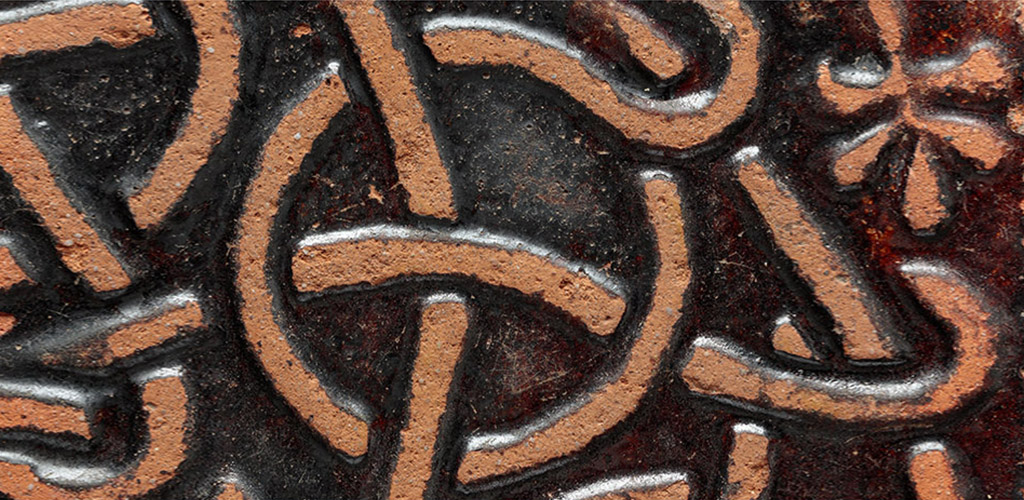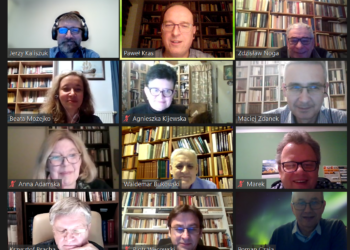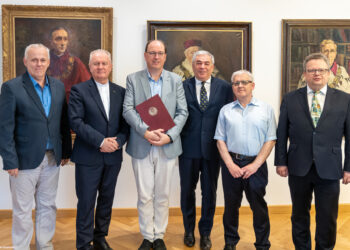History

A Short History of the Centre for Medieval Studies in Lublin
The Centre for Medieval Studies at John Paul II Catholic University of Lublin (KUL) owes its origins to the dreams and determination of a group of scholars from different Polish institutions who deeply care about cooperation with academic institutions from abroad on projects that are of paramount importance for Polish historiography. Although initiated by a handful of academics, its plans and hopes reflect the needs of the entire community of Polish medievalists. In the spring of 2022, a group of more than 20 people engaged in an informal discussion about the necessity to create a national centre for studying medieval history, and then decided to take formal steps to create a small institution operating independently from existing academic structures that would enable working on long-term projects coordinated by scholars of various medieval studies communities.
In January 2022, as discussions about the need for a national centre for medieval studies and the possibilities of its creation began, the future location of its headquarters and its organisational framework were not clear. There are dozens of medieval studies centres and institutes around the world which all operate differently, usually under the auspices of universities. They are usually focused on completing specific research or organisational tasks. The most famous one in our region is the Centre for Medieval Studies in Prague (Centrum medievistických studií), established in 1998, with which many Polish historians cooperate. The Medieval Studies Department, a part of Central European University in Budapest, is five years older; alongside supporting research and publication projects it runs MA and PhD programmes. Many ideas and expectations were voiced during online discussions between January and March 2022. Some participants questioned the point of creating such an institution in the first place; others had concerns that this project could divide our medieval studies community. We deliberated on establishing the centre as a part of the Polish Academy of Sciences or one of the Polish universities. Warsaw and Kraków were suggested as possible locations.
Alongside conversations about structure and location, the research projects conducted in the centre were being developed. Long-term editorial, inventorial and bibliographical projects were at the forefront; they were to be run by Polish research teams, and the results were to be published as print publications and digital databases. These projects include the editions of documents from the Vatican Archive and the archive of Grand Masters of the Teutonic Order currently housed in Geheimes Staatsarchiv Preussischer Kulturbesitz in Berlin-Dahlem, a corpus of Polish medieval seals and a catalogue of manuscripts from the book collection at the Monastery of the Canons Regular of Saint Augustine in Żagań (Germ. Sagan), which are currently housed in the Wrocław University Library. Apart from these four projects, new, smaller tasks emerged. One is to create a bibliography of Polish medieval studies connected with systematic addition of data on Polish medieval studies publications to the International Medieval Bibliography, the biggest online bibliographical database. The creation of a catalogue of medieval Dominican manuscripts in Wrocław, a project which had been pursued by Dr Ryszard Tatarzyński for many years and was already on an advanced stage of development, was also added to the list. We also decided that apart from doing research, it would be necessary to train young medievalists in source analysis and auxiliary sciences of history, which are becoming increasingly neglected in academic curricula. The Summer School is a programme designed to develop the skills of young medieval studies researchers; its regular editions are going to be organised in different Polish institutions.
The task of the Centre is to create a space for large-scale, multi-year research projects, which are difficult or impossible to complete with the existing selection of grant funding. The KUL Centre for Medieval Studies was established by the Rector of KUL in April 2022. Two weeks later, the Academic Board of the Centre, consisting of fifteen scholars, was established. It consists of renowned academics representing ten institutions from Poland and three from abroad. The President of the Polish Historical Society and the Chair of the Polish Medievalists Committee are regular members. The Board is responsible, among other things, for evaluating research projects pursued in the Centre, proposing candidates for the director’s position, and assessing submissions for job positions at the Centre.
The Centre is an independent unit which operates separately from the Faculty’s structures. It is overseen directly by the KUL Vice-Rector for Science and Human Resources. The Centre is a nationwide institution, which manifests itself in the composition of the Academic Board and the curricula of its employees and partners. Scholars who were awarded their academic degrees in various Polish universities work full-time in the Centre. Most employees are young scholars who have recently defended their PhD dissertations or are currently working on them.
I hope that the launch of the Centre will allow our vast and diverse medieval studies community to have even better discussions, complete research projects that are valuable to all of us and promote Polish medieval studies abroad!
Paweł Kras


